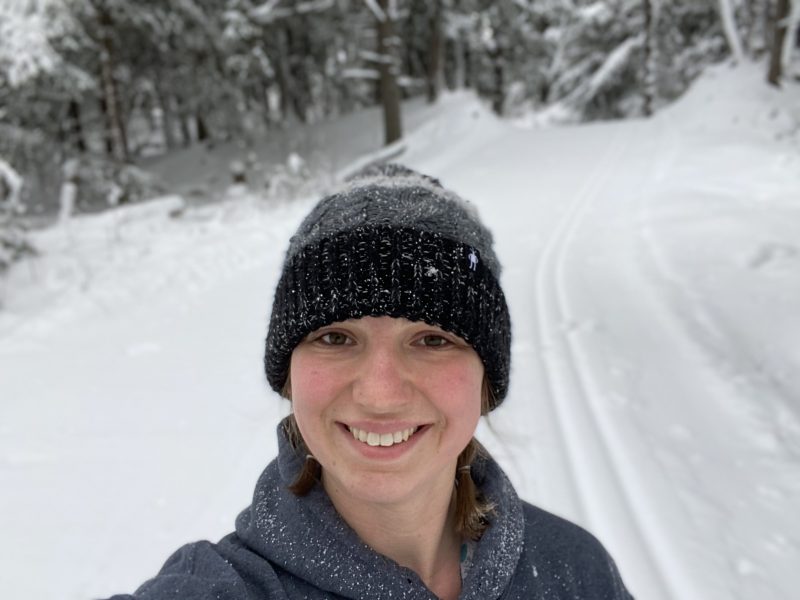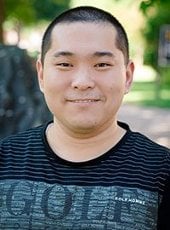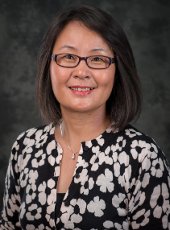The Mathematical Sciences (MS) Department proudly announces that Aili Toyli and Sean Phelan have been selected for the Undergraduate Research Internship Program (URIP)*. Toyli and Phelan will spend the academic year working on individual research projects under the guidance of a Michigan Tech faculty mentor.
Additionally, Sean Phelan was awarded a Summer Undergraduate Research Fellowship (SURF)**. Research is conducted over the summer semester.
Both SURF and URIP are high-caliber undergraduate research opportunities that create a unique collaboration with professors and hone a student’s skills to distinguish themselves.
Phelan’s SURF project title is, “Discovering Genetic Markers for Alzheimer’s Disease Using Genome-Wide Association and Rare Variant Association for Risk Prediction.” He is a dual major in Statistics and Mathematics–Business Analytics, under the advisory of Weihua Zhou—Applied Computing. We conducted an email exchange to find out more about Sean.
MS: What do you hope to do with your degree?
SP: “Work as a data scientist where I draw insights from large company data sets. I am interested in the operations and supply chain side of business where I can optimize the flow of resources.”
MS: What piqued your interest in doing research?
SP: “I want to apply my statistical knowledge from MTU to real-world data and explore the world of deep learning. Research at the MTU bioinformatics lab is a perfect fit, where I learn about medical deep-learning models and develop statistical risk scores. My research also draws from an elective science course I took, Intro to Biotechnology with Dr. Busov.”
MS: What do you enjoy most about the research you do?
PS: “Learning about new measures and models that I can apply in the future and keeping on top of cutting-edge machine learning methods are important for a budding data scientist.”
MS: What do you like to do outside of school?
PS: “I like to camp and backpack while exploring the outdoors. I also mountain bike and snowboard depending on the season.”
MS: Why did you choose to study here at Michigan Tech?
SP: “I like the UP, I received a solid scholarship, and the math program is great.”
MS: What do you like the most about Michigan Tech?
SP: “It’s a double-edged sword, but I like being in the middle of nowhere—so much outdoors and the air is so fresh. Also, the small-town energy here is very safe and friendly, which is much nicer than a large city like New York.”
Toyli is pursuing a B.S. in Statistics—under the advisory of Qiuying Sha— that she anticipates will open the door to a graduate degree in biostatistics, and a career as a statistical consultant for medical research. She has always been interested in both medical sciences and statistics, and knew she wanted to be in research. We asked Aili a bit about herself.
MS: What piqued your interest in research?
AT: “I attended the undergraduate research forum last fall and reached out to Dr. Zhou because I was intrigued by his work.”
MS: What do you enjoy most about research?
AT: “I enjoy applying what I’ve learned in class to real-world problems. I’m excited to contribute to research that could lead to improvements in medical treatments.”
MS: What have you learned most about yourself by doing research?
AT: “I’ve learned about my ability to learn independently. Research topics can seem daunting at first, but I’ve learned to create a plan and tackle it one step at a time.”
MS: What do you like to do outside of school?
AT: “I love to spend time with friends and family, especially outside. I enjoy hiking, skiing, and spending time on the lake!”
MS: Why did you choose to study here at Michigan Tech?
AT: “I chose to come to Michigan Tech because I really love both the area and the school’s STEM focus.”
MS: What do you like the most about Michigan Tech?
AT: “The people I’ve met are my favorite part of Michigan Tech. I’ve made so many wonderful friends!”
We, in the Mathematical Science’s Department, applaud our student’s success! Congratulations Aili and Sean!
*The URIP is open to all Tech undergraduates interested in joining a research project under the guidance of a Michigan Tech faculty mentor during the regular academic year (September-March). Student researchers showcase their findings at Michigan Tech’s annual Undergraduate Research and Scholarship Symposium, national conferences, and contribute to peer-reviewed journal articles graduation.
**SURFs are open to all Michigan Tech undergraduates who have at least one semester remaining after the summer term. Fellowship recipients conduct a research project under the guidance of a Michigan Tech faculty mentor, during the summer semester. SURF Fellowship recipients are required to:
- Submit interim progress reports through the summer.
- Attend four professional development meetings.
- Present their research at the Michigan Tech Undergraduate Research Symposium, or a professional conference in their field.
About the Mathematical Sciences Department
Mathematicians at Michigan Technological University conduct research and guide students, applying concepts to fields like business, engineering, healthcare, and government. The Mathematical Sciences Department offers undergraduate and graduate programs with degrees in mathematical sciences, applied statistics, and statistics. Students supercharge their math skills at Michigan’s premier technological university. They graduate prepared for successful careers in academia, research, and tomorrow’s high-tech business environment.
Questions? Contact us at mathdept@mtu.edu. Follow us on Facebook or read the Mathematical Sciences news blog for the latest happenings.



